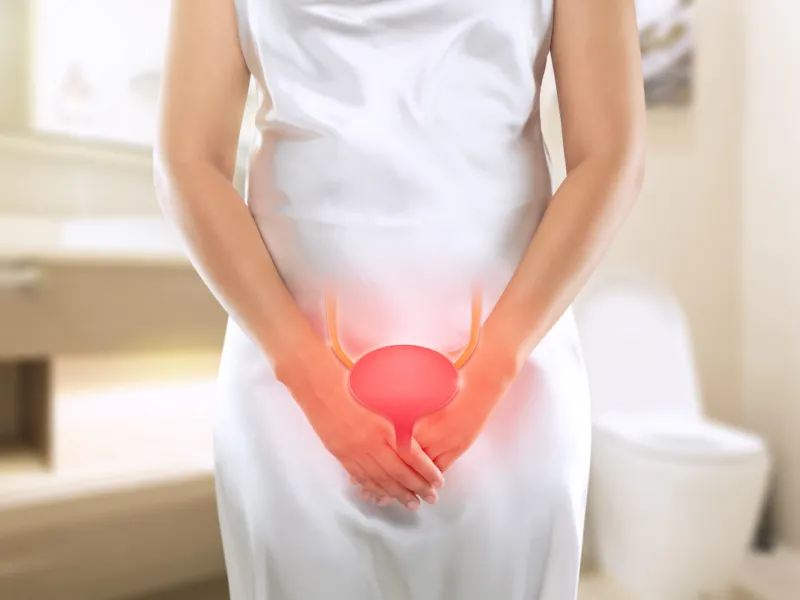Female Urology
Understanding Common Conditions and Treatments
Female urology is a specialized branch of urology focused on diagnosing and treating urinary tract and pelvic floor disorders in women. Due to anatomical differences, women are more susceptible to specific urological conditions, which can significantly affect their quality of life. Many conditions, however, remain undiagnosed or undertreated due to lack of awareness or hesitation in seeking help. In this blog, we explore common female urological conditions and their effective treatments.
Common Female Urological Conditions
Urinary Tract Infections (UTIs)
UTIs are one of the most frequent urological issues in women. They occur when bacteria enter the urinary tract, causing infections in the bladder, urethra, or kidneys. Women are more prone to UTIs due to the shorter length of the urethra, which allows bacteria to reach the bladder more easily.
Symptoms of UTI:
- Burning sensation during urination
- Frequent urination with little output
- Cloudy or strong-smelling urine
- Pelvic discomfort or pain
Treatment:
- Antibiotics are the first line of treatment for UTIs. It’s essential to complete the full course to avoid recurrent infections.
- Staying hydrated and practicing good hygiene can help prevent future infections.
Urinary Incontinence
Urinary incontinence, the involuntary leakage of urine, is a common condition among women, particularly those who have given birth or are older. Though often embarrassing, it is usually treatable.
Types of Urinary Incontinence:
- Stress Incontinence: Leakage occurs during activities like coughing, sneezing, or exercising.
- Urge Incontinence: A sudden, strong urge to urinate followed by leakage.
- Mixed Incontinence: A combination of both stress and urge incontinence.
Treatment:
- Pelvic floor exercises (Kegel exercises)
- Medications to reduce bladder spasms
- Surgical options such as sling procedures to provide support to the urethra
Health Check
We providing quality healthcare services to our community
Personalized Care
We providing quality healthcare services to our community
24/7 Medicines
We providing quality healthcare services to our community
Does seeing an oncologist mean I have cancer?
No, seeing an oncologist doesn’t mean you have cancer. You’re seeing an oncologist because you have symptoms that might be cancer. Your visit to an oncologist is an opportunity for you to talk to a specialist about your symptoms. Your oncologist might order tests to learn more about your symptoms.


Most popular and trending Questions?
As part of our commitment to advancing neurological science, we actively engage in cutting-edge research initiatives. By pushing the boundaries of knowledge, we aim to bring about breakthroughs that will shape the future
We offer a comprehensive range of medical services across various departments, including Cardiology, Neurology, Urology, General Surgery, Orthopedics, Gynecology, Pediatrics, Internal Medicine, Oncology, ENT, Dermatology, and additional specialties. Visit our services page for more information.
We offer a comprehensive range of medical services across various departments, including Cardiology, Neurology, Urology, General Surgery, Orthopedics, Gynecology, Pediatrics, Internal Medicine, Oncology, ENT, Dermatology, and additional specialties. Visit our services page for more information.
We offer a comprehensive range of medical services across various departments, including Cardiology, Neurology, Urology, General Surgery, Orthopedics, Gynecology, Pediatrics, Internal Medicine, Oncology, ENT, Dermatology, and additional specialties. Visit our services page for more information.
We offer a comprehensive range of medical services across various departments, including Cardiology, Neurology, Urology, General Surgery, Orthopedics, Gynecology, Pediatrics, Internal Medicine, Oncology, ENT, Dermatology, and additional specialties. Visit our services page for more information.
Female urology is a specialized branch of urology focused on diagnosing and treating urinary tract and pelvic floor disorders in women. Due to anatomical differences, women are more susceptible to specific urological conditions, which can significantly affect their quality of life. Many conditions, however, remain undiagnosed or undertreated due to lack of awareness or hesitation in seeking help. In this blog, we explore common female urological conditions and their effective treatments.
Common Female Urological Conditions
1. Urinary Tract Infections (UTIs)
UTIs are one of the most frequent urological issues in women. They occur when bacteria enter the urinary tract, causing infections in the bladder, urethra, or kidneys. Women are more prone to UTIs due to the shorter length of the urethra, which allows bacteria to reach the bladder more easily.
Symptoms of UTI:
- Burning sensation during urination
- Frequent urination with little output
- Cloudy or strong-smelling urine
- Pelvic discomfort or pain
Treatment:
- Antibiotics are the first line of treatment for UTIs. It’s essential to complete the full course to avoid recurrent infections.
- Staying hydrated and practicing good hygiene can help prevent future infections.
2. Urinary Incontinence
Urinary incontinence, the involuntary leakage of urine, is a common condition among women, particularly those who have given birth or are older. Though often embarrassing, it is usually treatable.
Types of Urinary Incontinence:
- Stress Incontinence: Leakage occurs during activities like coughing, sneezing, or exercising.
- Urge Incontinence: A sudden, strong urge to urinate followed by leakage.
- Mixed Incontinence: A combination of both stress and urge incontinence.
Treatment:
- Pelvic floor exercises (Kegel exercises)
- Medications to reduce bladder spasms
- Surgical options such as sling procedures to provide support to the urethra
3. Overactive Bladder (OAB)
Overactive bladder (OAB) is characterized by frequent and urgent urges to urinate, often leading to accidental leakage. It can disrupt daily activities and negatively affect sleep quality.
Treatment:
- Behavioral therapies, such as bladder training
- Medications that relax the bladder muscles
- Botox injections for severe cases
- Nerve stimulation techniques
4. Urethral Stenosis
Urethral stenosis refers to the narrowing of the urethra, which can restrict the flow of urine and cause discomfort. It is a less common but serious condition that can result from infections, inflammation, trauma, or prior surgeries.
Symptoms of Urethral Stenosis:
- Difficulty starting urination
- Weak or interrupted urine flow
- Frequent urges to urinate
- Incomplete bladder emptying or recurrent UTIs
Treatment:
- Dilation: A common procedure that involves gradually widening the narrowed part of the urethra.
- Urethrotomy: A minimally invasive surgery that involves cutting the scar tissue causing the narrowing.
- Reconstructive surgery: In severe cases, reconstructive surgery may be required to restore the urethra’s normal function.
5. Interstitial Cystitis (IC)
Also known as painful bladder syndrome, interstitial cystitis causes chronic bladder pain and a persistent need to urinate. The exact cause is unknown, but it may involve inflammation or nerve hypersensitivity.
Symptoms of IC:
- Pain or pressure in the bladder or pelvic area
- Frequent urination in small amounts
- Pain during intercourse
Treatment:
- Medications to reduce bladder inflammation
- Bladder distension to improve symptoms
- Physical therapy for pelvic muscle relaxation
When to See a Specialist Urologist
If you experience any symptoms related to the urinary system, it’s important to consult a urologist. Early diagnosis and treatment can prevent complications such as kidney damage. Female urological conditions are often successfully treated with minimally invasive procedures and medication, helping restore a better quality of life.
Dr. Anurag Kumar, a Specialist Urologist in Dubai, is an expert in treating a wide range of female urological conditions, including urethral stenosis, incontinence, and interstitial cystitis. His patient-centric approach and advanced treatment options ensure the best possible care.
Advanced Female Urological Treatments in Dubai
At Aster Cedar Hospital, Dubai, Dr. Anurag Kumar offers cutting-edge treatments for female urological conditions, including:
Laser therapies
Highly effective for treating recurrent UTIs and bladder issues.
Laparoscopic surgeries
Minimally invasive surgeries to treat conditions like urethral stenosis and OAB.
Urodynamic testing
A diagnostic tool that helps understand bladder function and tailor treatments accordingly.
Conclusion
Female urology is essential for maintaining women’s overall health. Conditions like UTIs, incontinence, and urethral stenosis are common but treatable. If you are experiencing urological symptoms, don’t hesitate to seek professional care. Early intervention can prevent complications and greatly improve your quality of life.
For expert consultation and advanced treatment options, schedule an appointment with Dr. Anurag Kumar at Aster Cedar Hospital, Dubai. You can also book online consultations if you are in India.
Contact Dr. Anurag Kumar:
Dubai: +971 58 167 4006

